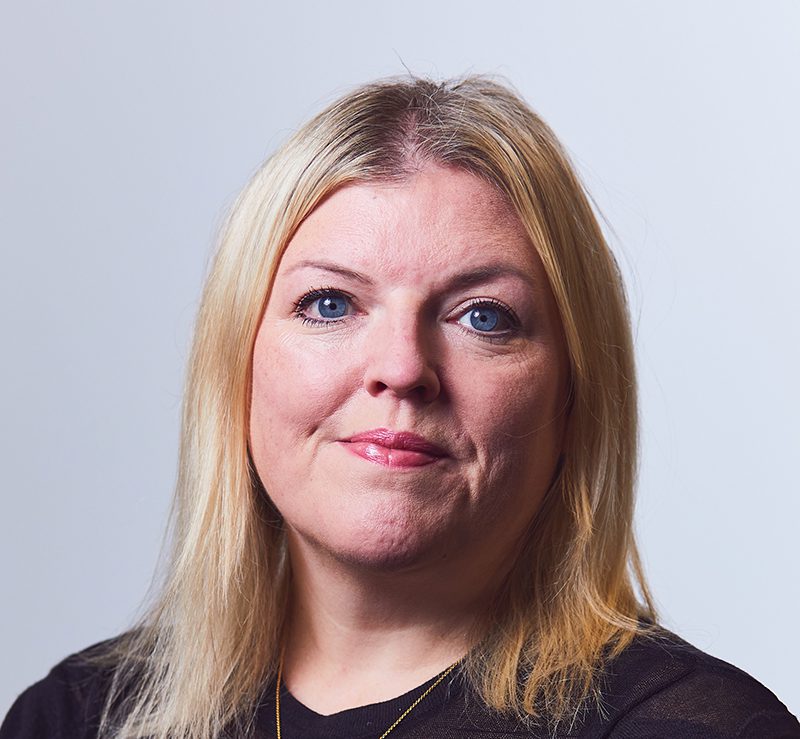Register for Free
Bookmark your favorite posts, get daily updates, and enjoy an ad-reduced experience.
Already have an account? Log in
Bookmark your favorite posts, get daily updates, and enjoy an ad-reduced experience.
Already have an account? Log in
Once renowned for industry and connectivity owing to its trademark canals, railways and factories, Manchester is now one of the UK’s leading tech hubs. In 2019 it was named Europe’s fastest-growing tech hub, and according to Tech Nation, the city saw a 63% increase in tech investment between 2020 and 2021. The 2022 UK Tech Cities report, published by CBRE, judged Manchester to be the number one regional “tech city”.
Today, Manchester is home to a thriving £5bn digital ecosystem, with household names like Google, BooHoo, THG and Microsoft all having a presence in the city. The city’s tech sector is diverse, with key strengths spanning AI, data, fintech, ecommerce and payments.
Its strong transport links for both domestic and international travel, coupled with the large number of universities and colleges, mean Manchester can tick important boxes for scaling tech firms. The University of Manchester alone boasts a student population exceeding 44,000, placing it behind only The Open University and University College London in size. In total there are some 116,000 students studying at one of the five universities across Manchester, and the strength of the tech sector is seen as a key reason why over 50% stay in the region after graduation.
In October 2021, PwC stated that it will create up to 1,000 jobs over three years at its new technology hub in Manchester. Meanwhile, in June 2022, commercial property company Bruntwood SciTech revealed it would be opening a £21m tech hub at Manchester Science Park. The city is home to many organisations focused on enhancing the scalability of tech businesses in the region, which include work by MIDAS, the inward investment promotion agency for Greater Manchester; the North West Fund; Greater Manchester Investment Fund; Business Finance Solutions; and Manchester Tech Trust.
Located seven miles to the south-east of Manchester, the industrial town of Stockport has gained traction in recent years as a place to set up and scale a tech business. Rents will typically be cheaper than in Manchester, while the town also boasts strong transport links. The Stockport Business Innovation Centre hosts 50 small businesses, giving them access to workspace and business support. It is soon to be home to three innovation centres, with Stockport Council confirming plans for a new state-of-the-art innovation centre in the heart of Stockport’s town centre. The Merseyway Innovation Centre will see 15,000 square feet of flexible serviced office and co-working space and will be managed by Oxford Innovation.
In March 2022, Stockport Council announced its Radically Digital Stockport strategy, which aims to ensure the town “continues to be at the forefront digitally”. Its key priorities and outcomes focus on bringing the digitally excluded online, increasing digital skills and digital working practices, providing modern digital infrastructure, boosting the tech sector, and using data to design services around the people who use them. Success stories include the likes of ecommerce platform Shopblocks and Laser Quantum. In May 2023, Kao Data, a specialist high-performance data centre developer and operator, announced plans to invest £350m into a new site in Stockport.
The city of Salford is a proverbial stone’s throw from neighbouring Manchester. The presence of the Manchester Ship Canal running through Salford put it very much at the heart of the North West’s famous cotton, spinning and weaving industry – today, though, the city is a thriving hub for the digital and creative sectors.
Most notably, Salford is home to MediaCityUK, a 200-acre development on the banks of the ship canal, which is home to media heavyweights such as the BBC and ITV, along with a vast number of other production companies, creatives and tech startups. MediaCityUK has played a key part in driving employment in the region’s digital creative industries up from 6,000 in 2010 to over 15,000 by 2020.
But Salford’s tech scene has more to offer than just media and digital creatives. For example, Vodafone Edge and Home of Skills and Technology (HOST) have partnered to create a state-of-the-art innovation lab to allow the city's software developers to experiment with next-generation cloud technology. Meanwhile, Salford Royal Hospital, part of the Northern Care Alliance NHS Group, has been widely recognised for its innovation in using technology, data and different tools to transform how health and social care are delivered.
The University of Salford plays a big part in ensuring access to tech-skilled workers. Meanwhile, The Greater Manchester Institute of Technology in Salford, a new multi-million-pound education institution, is to welcome its first students in September 2023. Recent success stories include venture capital firm BGF investing £9m into the Salford-based communication software firm Voicescape in April 2023; Salford’s Mymanu, which has developed live voice translation earbuds, being included in KPMG’s new 12-month scaleup growth programme in Greater Manchester; and Salford being named fourth on SAS’s AI-readiness Index, which lists the UK’s best-prepared towns and cities for AI innovation.
Rochdale, a town north of Manchester, has established itself as a centre for advanced manufacturing and engineering, attracting large enterprises and small startups alike. Benefitting from easy motorway access to Manchester, Leeds and Liverpool – all of which have international airports – Rochdale appeals to exporters in particular, providing both access to a wide talent pool and the necessary transport links from them to deliver goods.
Indeed, 1.6 million live in the recruitment catchment area of Rochdale, with nine million people able to access the town within a 60-minute drive. Rochdale’s Kingsway Business Park has been recognised as one of the UK’s most active projects. It is home to Wireless CCTV (WCCTV), a leading equipment-as-a-service provider of re-deployable wireless surveillance products – the company received £30m funding from venture capital firm LDC in 2021.
Two years ago, Rochdale’s manufacturing tech centre received £22.6m from the UK Research and Innovation’s Strength in Places Fund. The investment will help the creation of the Advanced Machinery and Productivity Institute (AMPI); the funding will go towards a five-year innovation programme, rather than the building of the actual institute itself, which is due to open in late 2024.
The iconic cricket and football grounds have etched the words Old Trafford into the minds of many. But there is a modern, progressive side to Trafford, a borough of Greater Manchester, that warrants recognition. In the eight years to 2020, 485 tech startups set up in Trafford, placing it second behind Manchester out of 39 towns and cities across the Northwest in terms of tech-based business creation.
In Greater Manchester, Trafford also has the highest percentage of adults educated to a degree level or equivalent (43% compared to a Northwest average of 30%), ensuring tech firms in the borough have access to a skilled talent pool.
Trafford Park is one of Europe’s largest industrial hubs. Spread across nine million square metres, the industrial park is home to over 1,300 businesses and 35,000 employees. It was recently announced that technology giant Siemens has set a target of 2038 for decarbonising Trafford Park at a cost of £1.2bn, with the shift to net-zero expected to attract more tech businesses – particularly in the ESG space – to set up there.
Notable Trafford success stories include health-tech startup NeoPhore, which has raised £21.9m in investment to date; and Raycast, an app for developers to reduce burdensome context switching, which has raised over £13m.
Digital skills in the education ecosystem will cement the UK's place as a global hub for innovation

Professor Janice Allan,
Dean of Salford Business School




Professor Janice Allan,
Dean of Salford Business School
In today’s rapidly evolving digital landscape, the demand for digital skills has never been greater. As technology continues to transform industries, businesses and societies, the need for individuals to be equipped with essential digital capabilities is paramount. By incorporating digital skills as an integral part of the education ecosystem, the UK can leverage its rich history of innovation and technological advancements to further enhance its position as a global hub for innovation.
Read more +
Salford Business School is currently leading the charge in tackling the digital skills gap by taking a proactive stance. We recognise the transformative power of digital skills and their critical importance in shaping the future workforce. Our commitment to equipping graduates with the necessary digital competencies is evident in our curriculum and approach to teaching. We have, moreover, made significant investment in edtech, including immersive technologies and serious game simulations, to extend the reach of digital and real-world learning.
By embracing and embedding emerging technologies, we ensure our programmes reflect the changing needs of the digital era. We offer a wide range of courses and opportunities for students to delve into areas such as digital transformation, data analytics and AI, to name a few. By integrating these technologies into our curriculum and providing practical, industry-relevant experiences, we empower our students to meet the demands of the job market head-on.
Aligned with the vision of Greater Manchester Mayor Andy Burnham for an integrated digital skills region, Salford Business School fully embraces the Manchester Baccalaureate (MBacc) as a pathway to digital readiness. The MBacc offers students an alternative educational journey that emphasises technical education and the acquisition of digital skills. Embedding digital skills into the curriculum and offering young people alternate pathways to continue their development will ensure an inclusive, thriving future workforce that’s equipped with the essential digital capabilities needed in an increasingly technology-driven society.
The digital revolution is ongoing, with advancements and disruptions occurring at an accelerated pace. To excel in this dynamic environment, graduates must possess not only digital skills but also the ability to adapt and upskill throughout their careers. At Salford Business School, we foster a culture of lifelong learning, providing continuous professional development opportunities, micro-credentials and executive education programs. We equip our graduates with the tools and resources to stay ahead of the curve and remain competitive in an ever-evolving digital world.
Empowering graduates is empowering the UK
The time to act is now. The UK has the potential to become a global leader in the digital age, but it requires a collective effort from educational institutions, industry partners and policymakers. By making digital skills a priority and integrating them into the education ecosystem, we can unleash the full potential of our future workforce, drive economic growth, and solidify the UK’s position as a global hub for innovation.
To find out more about Salford Business School, visit: www.salford.ac.uk/salford-business-school









Tech decision maker view: data snapshot
To get an understanding of how the Greater Manchester tech industry currently views itself, the region’s greatest strengths and challenges, and where it is heading, UKTN commissioned Censuswide to survey 100 decision-makers at technology companies based in the county. Here’s what they said.
87% say that Greater Manchester is currently a good place to start and grow a technology business.
83% say that it has become more attractive to start a tech business in Greater Manchester in the last five years.
79% say that the Greater Manchester tech ecosystem is internationally recognised.
67% say that the Greater Manchester Combined Authority is doing enough to support tech businesses, versus 60% for central government.
87% say that the Greater Manchester tech sector will grow rapidly in the next five years.
75% say there is a clearly defined plan to grow the Greater Manchester tech ecosystem.
Cybersecurity, AI and ecommerce are viewed as the region’s strongest technology sub-sectors. Blockchain and cryptocurrency ranked last.
Artificial intelligence is the standout favourite for the strongest sub-sector over the next five years. Robotics was the second-most selected.
Boosting Manchester's tech prowess through project economies




Kai Ojo,
CEO, Planisware UK&I




Kai Ojo,
CEO, Planisware UK&I
Tony Robbins, the American author and coach, once famously said, “Most think the past equals the future. Decision is the ultimate power.” This got me thinking about the evolution of our beloved home, Manchester. The city has paved the way for several disruptive moments that have shaped innovation and technology for centuries. The UK’s first passenger railway ran from Manchester to Liverpool. Alan Turing pioneered artificial intelligence during his time at The Victoria University of Manchester. And Graphene, the world’s thinnest material expected to revolutionise computer screens, was discovered by two University of Manchester scientists.
All three examples highlight how Manchester has provided a foundation for innovative thought processes to flourish. However, as Robbins’ quote suggests, history is no marker for future success – but it can be a force for inspiration. Manchester has the platform to thrive and by using the correct methodology it can remain an established innovation hub.
Today, Manchester’s economy is frequently cited as being in a state of limbo with progression blocked by numerous forces. How does Manchester progress past this point? How can it continue to thrive in times of unanticipated change? This is where project economies comes into play. The PMI defines the Project Economy as “a fundamental paradigm shift” in the business world toward using projects to handle work and solve problems. Manchester’s position as the frontrunner of the north provides a good pedigree to adapt to this methodology, but it requires the correct decision-making. So, what is it about the Project Economy that can help Manchester thrive and why should you be interested?
Read more +
Despite its formidable backbone of educational institutions, the city is finding it difficult to keep up with the pace of opportunities created within the tech space. If we were to take a project-focused approach, the initial step typically revolves around defining a clear goal and a means for monitoring progress. That’s why I decided to join the Industry Advisory Board at the University of Salford. Now is the time to set clear goals towards empowering the younger generation, unlocking pathways to new opportunities, and supporting their pathway to success.
Young people’s futures are close to my heart, particularly within the tech industry. Having presented to many groups such as YouthLeads and Agent Academy, pathways and careers tend to be the key point of discussion. Manchester can tap into its diverse talents and drive innovation forward, offering more opportunities within the creative and digital space.
Read more +
The message coming out from the Great Northern Conference of 2022 was that rail services across the north and in Greater Manchester were just not good enough. Following strikes from both rail and bus drivers in the city, Greater Manchester Mayor Andy Burnham expressed his concern over the disruption and delays across the region, especially during the busiest periods such as holidays, festivals, and other celebrations.
In contrast to this, Greater Manchester Transport Commissioner Vernon Everitt, recently shared his thoughts about the first 50 zero-emission buses being rolled out hitting Wigan, Bolton, Bury and Salford. This is part of the new ‘Bee Network’ including buses and rental bikes in Manchester, which will “transform public transport for everyone” in the region.
Trams also play a crucial role in Manchester's transport system, providing a reliable and efficient mode of transportation. The Metrolink tram network connects various parts of the city, offering both urban and suburban connections. Trams run at regular intervals, providing convenient access to key areas, including Manchester Piccadilly, Victoria, MediaCity, and the Trafford Centre. The Metrolink system is known for its modern infrastructure, comfortable seating, and accessibility features for passengers with disabilities. The transport infrastructure is advancing towards a fully integrated “London” style way of working; if we can continue on this trajectory, we can create a more cost-effective means of transport, which will help to encourage talent into the city.
Read more +
MediaCity, the home of Planisware UK , operates on a 100% sustainable operation promise. The popular Salford-based hub for creative and tech companies creates positive impacts for the local community through its Sustainability & Social Value Network, support for the Salford Foodbank, and action around sustainable awareness days.
With its strong transport links and sustainable growth, MediaCity puts people and the planet first. In fact, it boasts the highest cluster of net-zero-carbon buildings in the UK, including White Tower where Planisware is based. We’re proud to have our UK office situated in the heart of MediaCity, seeing the transformation of its environmental, social, and governance (ESG) approach. With over five million visitors per year, MediaCity is the place to live, work, and play and with plans to double in size over the next decade, it is a model of successful progression for the rest of Greater Manchester. If we can replicate what is being done for the entire city of Manchester then we stand the chance of being the first city to receive a 100% sustainable status. What an achievement that would be!
A critical stage
Manchester stands at a critical stage in its evolution, drawing inspiration from its rich history of innovation. As Robbins’ quote suggests, the city cannot rely solely on past achievements but must embrace a forward-thinking mindset to shape its future. By prioritising the well-being of people and the planet, Manchester can continue to build a sustainable and thriving ecosystem for businesses, residents, and visitors. Education plays a crucial role in preparing the city’s young talent for the tech industry. Together, we can help to bridge the gap to show the potential of the next generation.
Find out more about how Planisware can support your business.
To provide the best experiences, we and our partners use technologies like cookies to store and/or access device information. Consenting to these technologies will allow us and our partners to process personal data such as browsing behavior or unique IDs on this site and show (non-) personalized ads. Not consenting or withdrawing consent, may adversely affect certain features and functions.
Click below to consent to the above or make granular choices. Your choices will be applied to this site only. You can change your settings at any time, including withdrawing your consent, by using the toggles on the Cookie Policy, or by clicking on the manage consent button at the bottom of the screen.